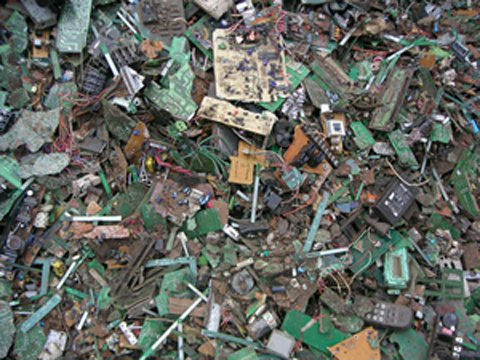 In the beginning of this semester a tragic earthquake hit Haiti and the effects were tragic. Because this incident was a global matter, we discussed it in class that is set to understand certain issues such as globalization. Since then there has been many efforts in order to restore and help Haiti recover from this disaster that has destroyed the lives of many. One of these ways that the United States has stepped into help was the Haitian Hemispheric opportunity through partnership Encouragement (HOPE) Act. This act was created in order to provide flexibility of exporting goods such as garments. In Haiti, garment making is a big part of where Haitians income comes from. A lot of the natives are considered poor and underclass so the jobs are scarce and taking on a rough job in a "sweat shop" tends to be better than nothing. In order to help these horrible conditions, the HOPE Act has not only made garments exported from Haiti duty-free (un-taxed) but they have also coordinated with other organizations to help the working conditions become better for the people of Haiti that work in these garment shops. Along with these efforts to make Haitian garment jobs better, they have also offered technical and financial support to further help with the production of income.
In the beginning of this semester a tragic earthquake hit Haiti and the effects were tragic. Because this incident was a global matter, we discussed it in class that is set to understand certain issues such as globalization. Since then there has been many efforts in order to restore and help Haiti recover from this disaster that has destroyed the lives of many. One of these ways that the United States has stepped into help was the Haitian Hemispheric opportunity through partnership Encouragement (HOPE) Act. This act was created in order to provide flexibility of exporting goods such as garments. In Haiti, garment making is a big part of where Haitians income comes from. A lot of the natives are considered poor and underclass so the jobs are scarce and taking on a rough job in a "sweat shop" tends to be better than nothing. In order to help these horrible conditions, the HOPE Act has not only made garments exported from Haiti duty-free (un-taxed) but they have also coordinated with other organizations to help the working conditions become better for the people of Haiti that work in these garment shops. Along with these efforts to make Haitian garment jobs better, they have also offered technical and financial support to further help with the production of income.-For more information on Haitian recovery and the HOPE act please visit
http://blogs.cgdev.org/globaldevelopment/2010/01/haitian-recovery-sweatshop-jobs-and-the-role-of-trade-preferences.php
 After reading about this act to help Haiti, I wonder why it took such a natural disaster for others to get involved. It again relates to the issues we have talked about in class such as social inequality and sweatshops that leads to globalization. Effects of things such as branding has pushed companies in the U.S. to outsource to poorer countries in order to get more product for their buck. In this process, they pay the hard workers little amounts of money and force them to work long hours away from their family. A large majority of this unfortunate group is young women who are physically and emotionally tortured. As a young women living in the United States its hard not to draw a connect to these poor Haitian women workers. I will admit I have bought brand name garments and I tend not to even think twice. It is such a normality to American consumers to go out and shop and buy clothing. However it is the complete opposite for many in Haiti and I am so saddened by this. Most people can barely afford food and clean water let alone clothing.
After reading about this act to help Haiti, I wonder why it took such a natural disaster for others to get involved. It again relates to the issues we have talked about in class such as social inequality and sweatshops that leads to globalization. Effects of things such as branding has pushed companies in the U.S. to outsource to poorer countries in order to get more product for their buck. In this process, they pay the hard workers little amounts of money and force them to work long hours away from their family. A large majority of this unfortunate group is young women who are physically and emotionally tortured. As a young women living in the United States its hard not to draw a connect to these poor Haitian women workers. I will admit I have bought brand name garments and I tend not to even think twice. It is such a normality to American consumers to go out and shop and buy clothing. However it is the complete opposite for many in Haiti and I am so saddened by this. Most people can barely afford food and clean water let alone clothing.After reading this I ask myself and others a few questions on consumerism. It ultimately leads to globalization, however this isn't how it always used to be. What has happened to stir up such cruel treatment for more money? Has it stemmed from the American Dream and pushed its way towards this want for the newest things and fancy items to become labels of class and power? How must our society and culture changes its thinking and ways in order to better the lives less fortunate than ourselves here in America?
Click HERE to open the feedback tool.





